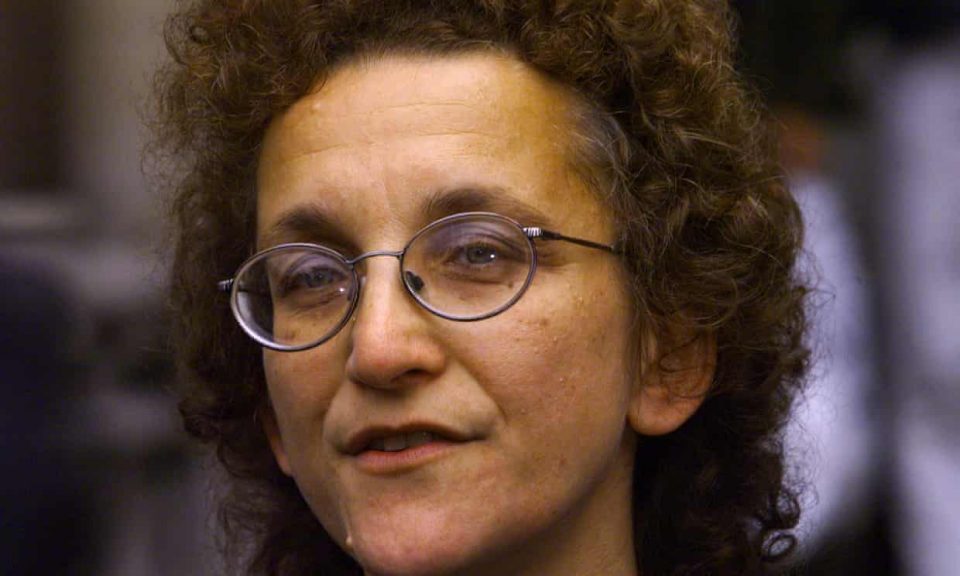In 1998, during the height of Ruth Wyner’s impactful career as a director of progressive initiatives aimed at aiding homeless individuals, a throng of police officers hurried up the cramped staircase of the Wintercomfort day center in Cambridge and crowded into Ruth’s attic office. They informed her that eight of her “clients” had been detained for drug offenses.
“Fantastic. Good job,” Ruth replied, known for her staunch anti-drug beliefs; her drug policy, crafted in collaboration with the police, was viewed as a benchmark for effective practice.
“We are also charging you,” the officers continued, “for knowingly permitting the distribution of a class A drug on the charity’s premises.”
This arrest, followed by Ruth’s later imprisonment, ignited worldwide outrage and ultimately curtailed the career of one of the most successful advocates for homeless individuals.
Ruth, who passed away at the age of 74, was a formidable advocate for social justice. After her release from prison in 2000, she shifted her focus and became a pioneer in group therapy. Her life was characterized by resilience, creativity, and unwavering dedication to those who were most in need.
Born in London, Ruth was the daughter of Anna (née Nagley), a mosaic artist, and Percy Wyner, a hero from the Burma campaign who later worked as a cloth merchant. She attended St Paul’s Girls’ School in West London, where she excelled in 100-meter hurdles and in being a bit of a rebel. Upon graduating from St Paul’s in 1968, she eagerly immersed herself in the counterculture lifestyle.
She became the editor of one of the alternative magazines established by John “Hoppy” Hopkins, worked as a local journalist, relocated to Norwich, joined the band Crazy Lizard as a songwriter, vocalist, and synthesiser player, and moved in with the lead guitarist, Gordon Bell, who would later become her husband. Crazy Lizard began with a benefit concert for the homeless, gained popularity for a year, and concluded with a spectacular performance amid a snowstorm at Hastings Pier.
For six years, Ruth and Gordon occupied a vacant bungalow situated in an industrial area. After welcoming their first child, Joel, they asked a friend to install electricity. “He just started hitting things until the lights came on. He didn’t really know how he did it either.” When real estate developers began showing interest, Ruth successfully negotiated her first significant fundraising opportunity: £1,000 to vacate the premises immediately. She used that money as a down payment on a new home, preparing for the arrival of their daughter, Rachel.
While living in Norwich, tragedy struck when Ruth’s younger brother died by suicide after jumping from a homeless shelter window in London. Though she rarely discussed this event, she transformed her grief into action. She began working overnight shifts at a “Dickensian” church, St Martin at Oak, overseeing up to 40 homeless men and women battling addiction, mental health issues, and poverty. She eventually became the manager and later the deputy director of St Martins Housing Trust charity. Subsequently, in Great Yarmouth, she established a new direct-access hostel for the homeless within just a year.
Renowned for her visionary ideas and impactful campaigning, Ruth was recruited by Wintercomfort, a homelessness charity operating out of an old bus in a Cambridge parking lot. Within three years, she relocated to a four-story revamped dance studio overlooking the river and established a highly effective day center, a winter night shelter, and an outreach program.
Daily, between 70 and 120 individuals utilized the services, including many struggling with drug addiction, numerous battling alcoholism, and a substantial number dealing with mental illness or escaping environments of abuse and loss. Ruth held the belief that homelessness stemmed less from a lack of shelter and more from deep-seated issues in a person’s life, viewing the absence of a home as more of a visible symptom than the core problem.
Ruth possessed a unique talent for navigating the complex intersection of broad governmental policies and the sometimes chaotic realities faced by the homeless. She remained strong and professional amidst conflicting pressures, exemplified when she negotiated a £400,000 agreement for a new alcohol-free night shelter with the city council and then hastily returned to the day center to intervene and talk an alcoholic client out of a suicide attempt in the restroom.
Shortly after announcing that a new night shelter would be located next to an affluent residential area, the police installed a hidden camera on the roof of Jesus College rowing club, across the street from Wintercomfort. After 300 hours of surveillance, they confirmed eight heroin transactions occurring on the charity’s grounds.
During the trial, the judge remarked that there was no proof Ruth had encouraged or profited from the drug activity; rather, she had simply disagreed with law enforcement about the most effective way to prevent it and refused to disclose the charity’s list of banned users for confidentiality reasons. In light of this, he sentenced Ruth to five years in prison.
Despite her incarceration, Ruth remained resilient. She quickly adapted, learned the prison “slow walk,” developed an unexpected affinity for violent films (which vanished upon her release), became a gardener in the prison, and began writing a book about her experiences behind bars, titled From the Inside (2003). By the time her sentence was reduced to time served following an appeal, she had been diagnosed with breast cancer.
“Group therapy saved me,” Ruth stated.
Following her release and recovery, Ruth traveled to China, India, and Canada, became a tai chi instructor, and trained as a group analyst at the Turvey Centre near Bedford. Group analysis, emphasizing both individual and community dynamics, aligned perfectly with Ruth’s exceptional communication and mentorship skills.
For 17 years, she dedicated herself to the Cambridge Group Therapy Centre, serving as the clinical lead from 2011 to 2018.
Once again, she championed inclusivity and openness. Unlike many group therapy settings, she refused to turn away individuals struggling with addiction or those dealing with trauma; she embraced them.
She is survived by her husband, Gordon, whom she wed in 1978, their children Joel and Rachel, a grandson named Kaio, and two granddaughters, Ramona and Lydia.
Ruth Avril Wyner, a charity worker and group therapist, was born on April 1, 1950, and passed away on December 29, 2024.


